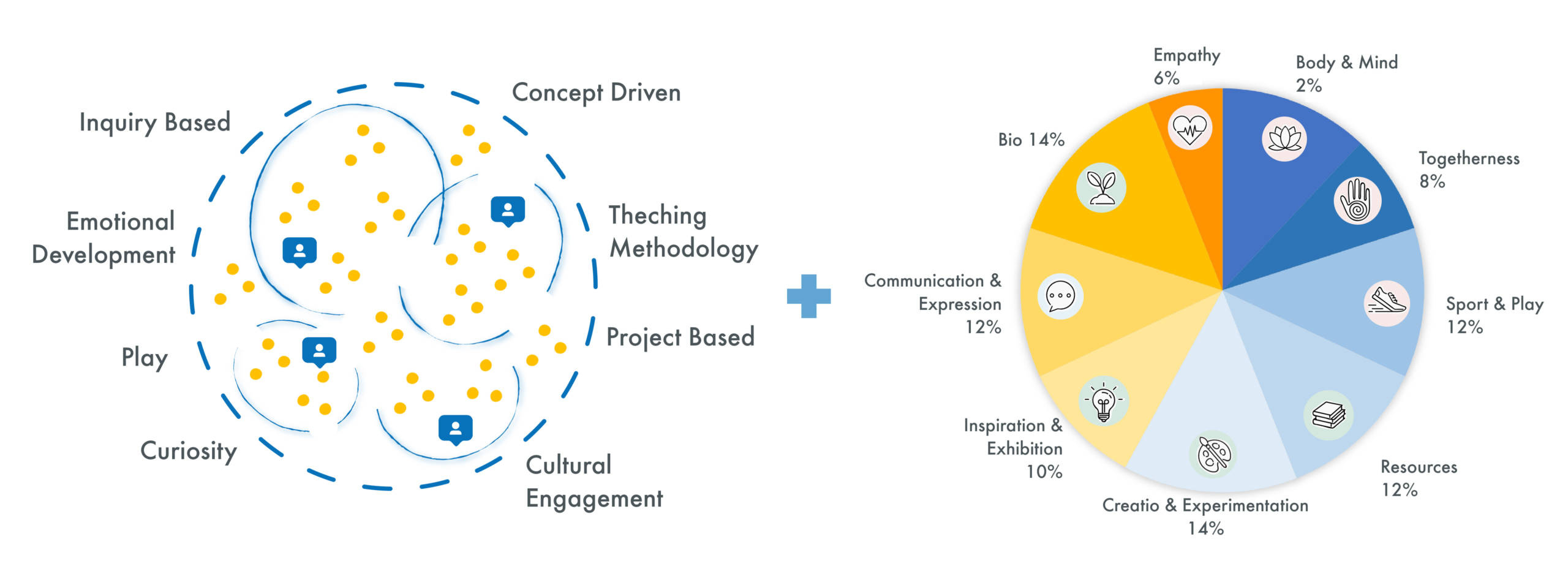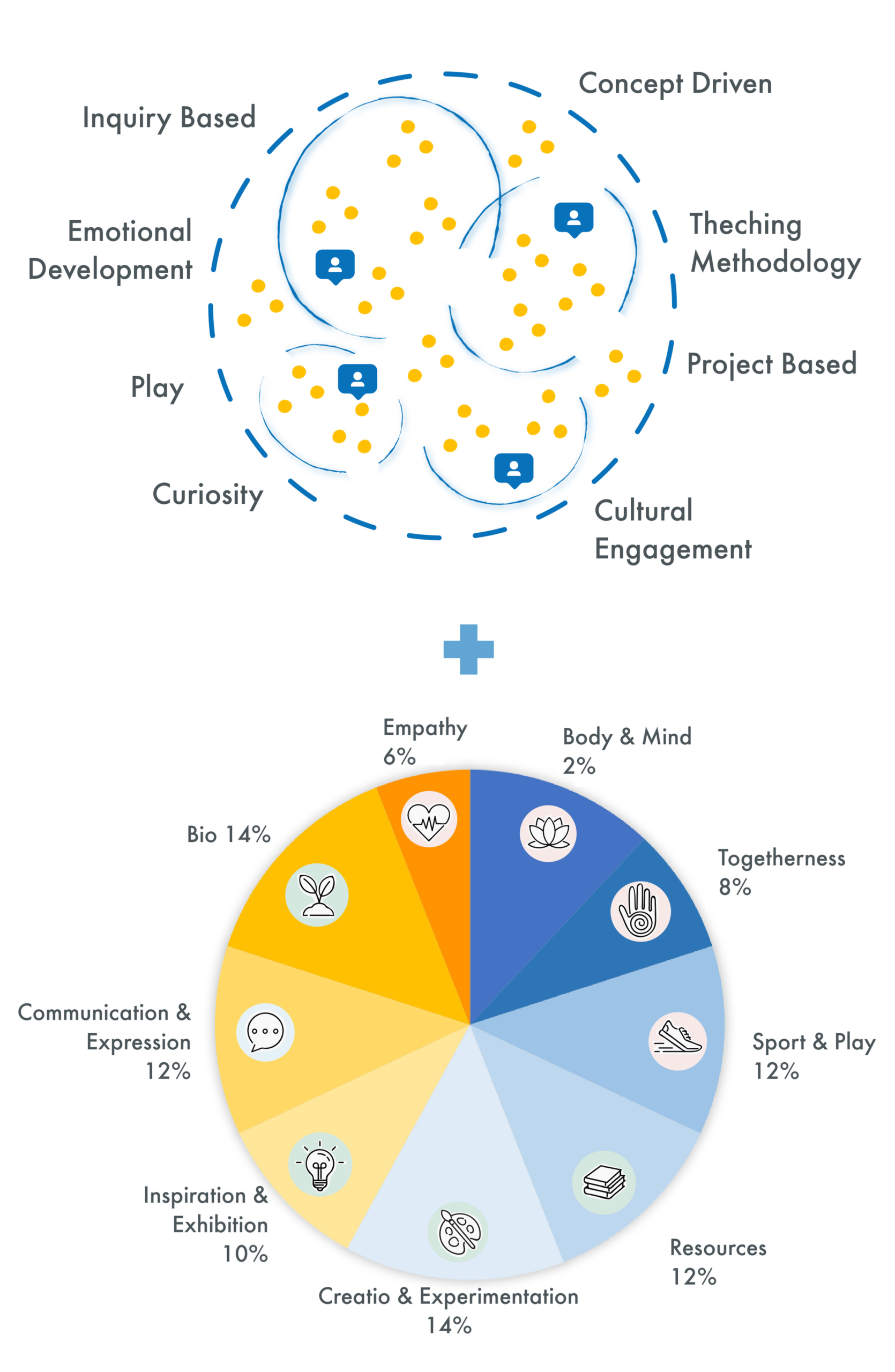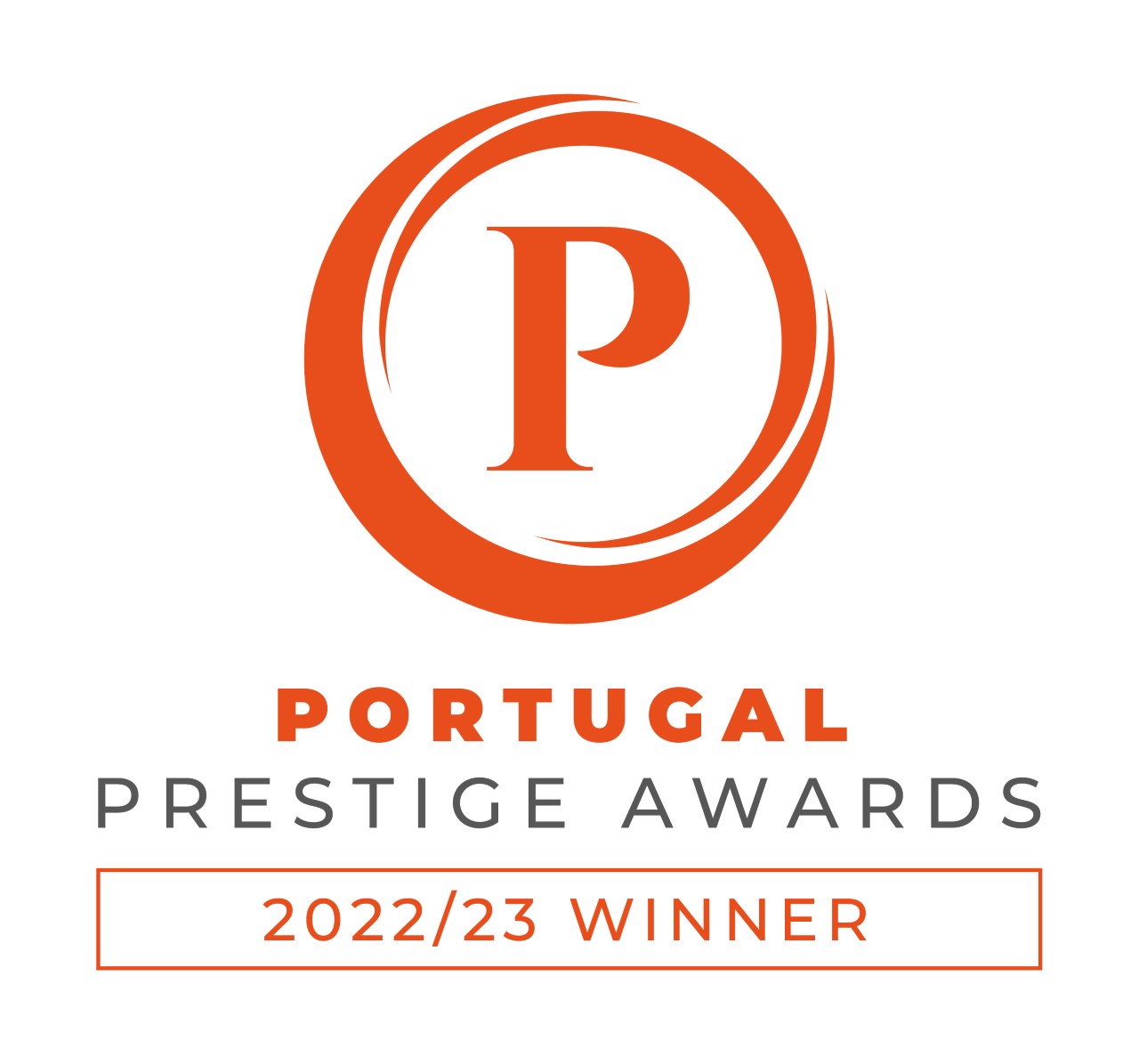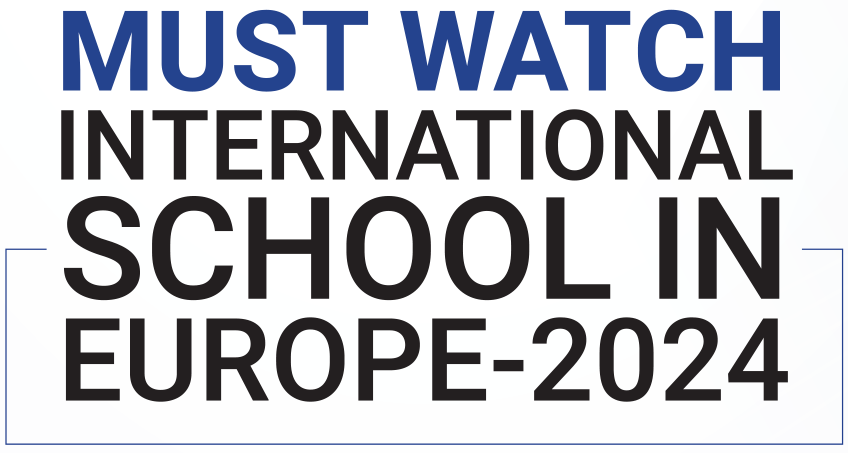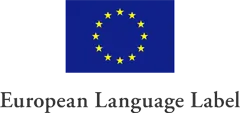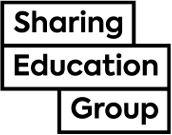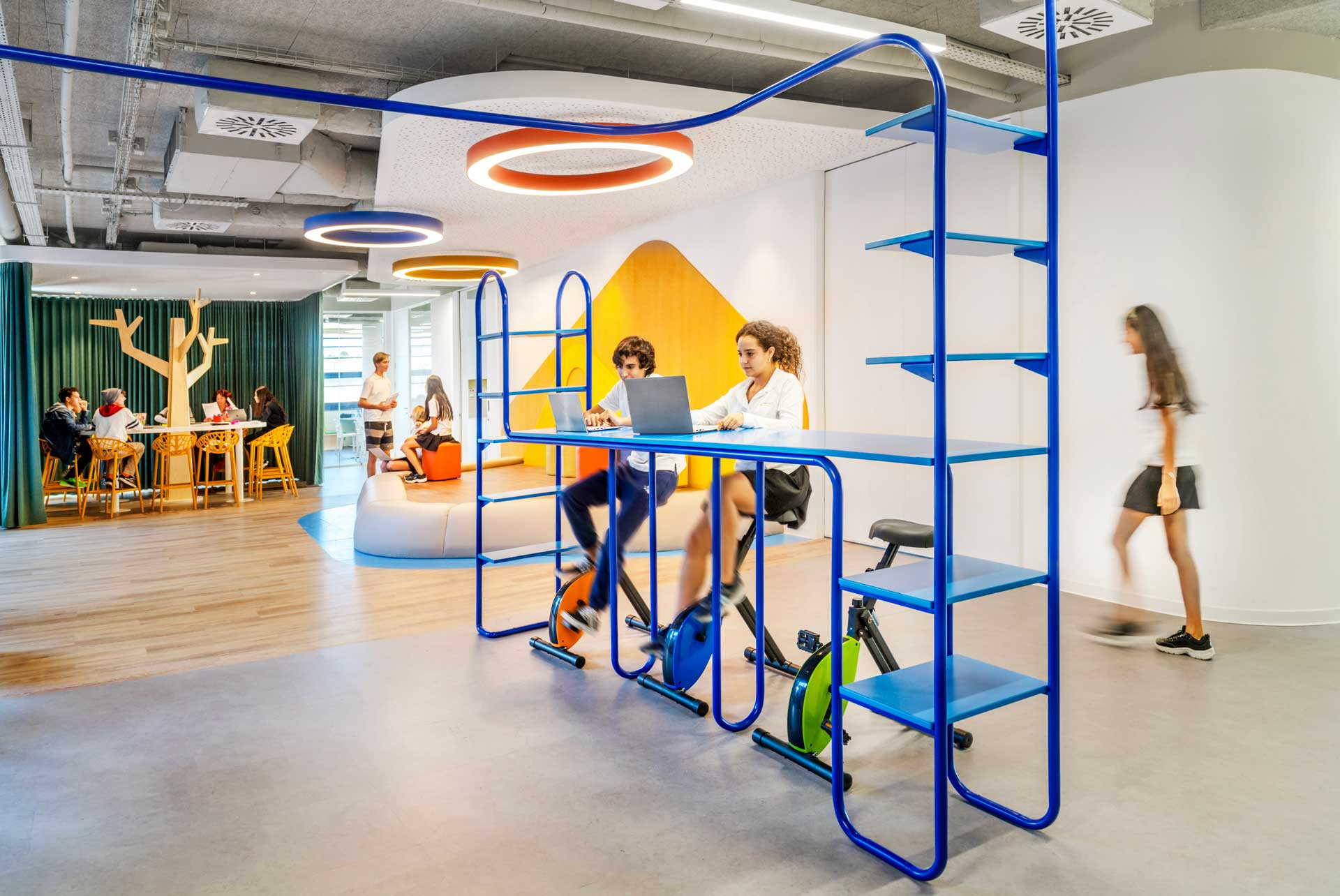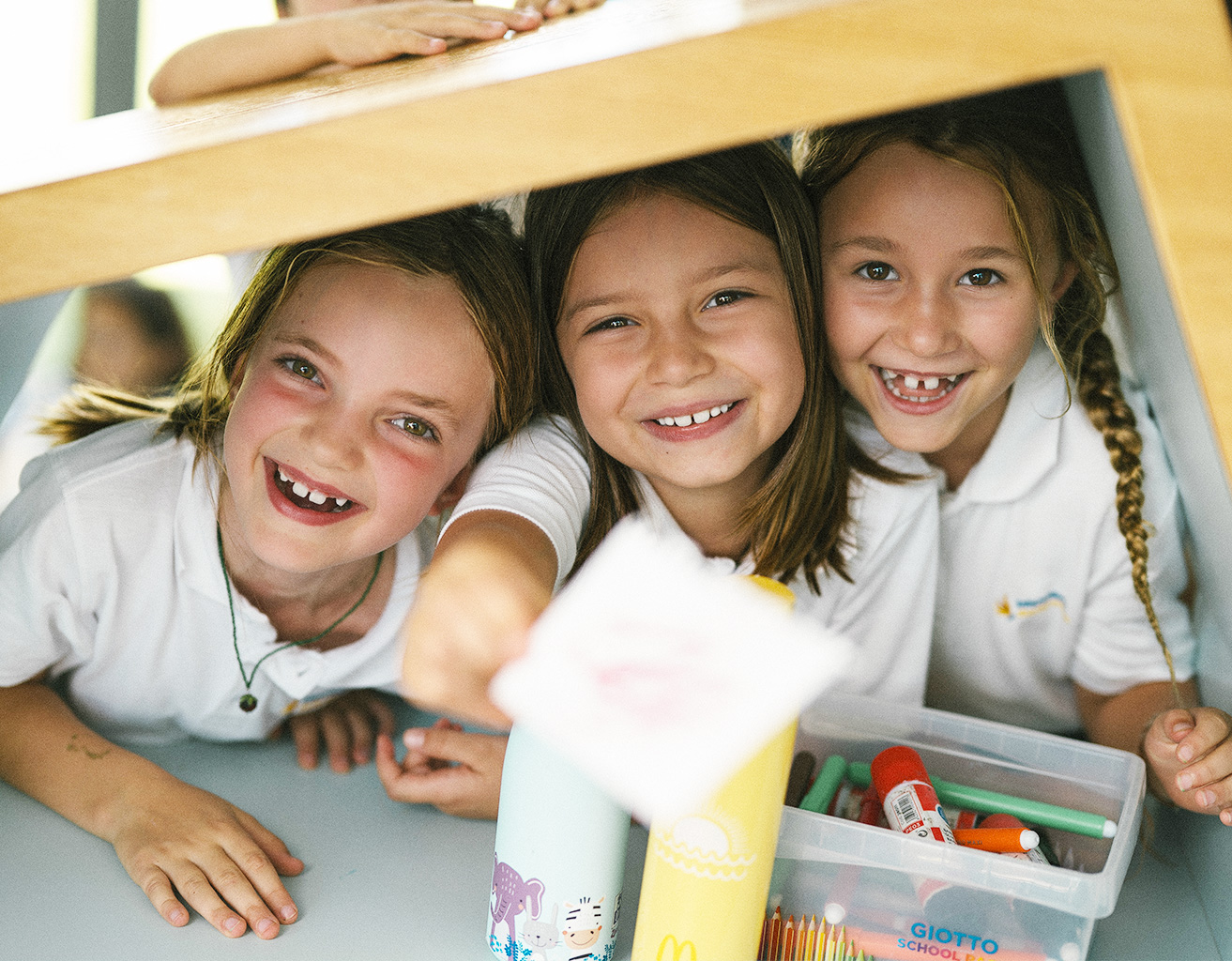
Children’s education
The Base of the Programme
The Primary Years Programme (PYP) is one of the stages of the International Baccalaureate (IB) Programme. It is for students aged 6 to 12 and focuses on the development of the whole child, not only in the classroom but also in the world outside through various environments where children learn. It offers a framework that meets children’s needs: academic, social, physical, emotional, and cultural.
ISS aims to offer a balanced programme that focuses on acquiring knowledge, developing essential skills, understanding meaningful concepts, and developing positive attitudes, leading to thoughtful action. We do all of this within a school community that values care, hospitality and multiculturalism as key elements of our work.
Why is it better?
Essential Elements of the Primary Years
In their studies, students develop an understanding of general concepts, skills (thinking, communication, social, research and self-management), attitudes, actions, and knowledge.
“Nurturing lifelong love of learning and developing essential skills for this ever-changing world.”
Through inquiry-based learning, our students investigate real-world issues and explore concepts across a range of subjects. This approach fosters a lifelong love of learning while helping them develop essential skills needed for success in an ever-changing world.
At ISS, our goal is to create an engaging, supportive, and inclusive environment where students are empowered to ask questions, solve problems, and reflect on their learning journeys. Through collaboration, creativity, and reflection, they become active participants in shaping their education and the world around them.
– Jenie Noite, Coordinator of Primary Years Programme (PYP) in Madeira
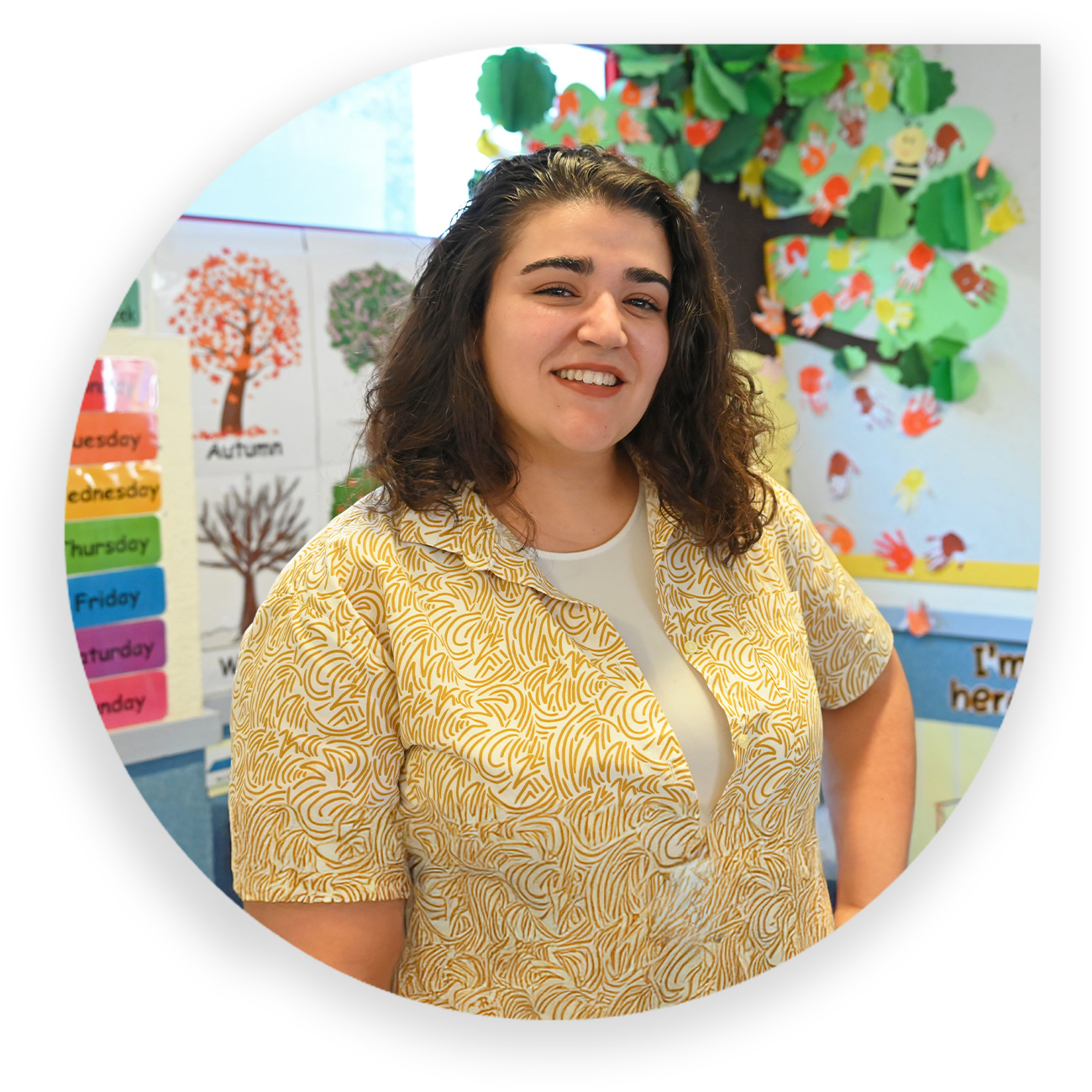
The IB Methodology
Learning with the Transdisciplinary Themes
The transdisciplinary themes in the Primary Years mark the starting point of student inquiries. Within each theme’s context, students explore related central ideas and assimilate knowledge. These themes engage the learning community in rich dialogues and ongoing collaboration to build an understanding of themselves, their wider community, and the world.
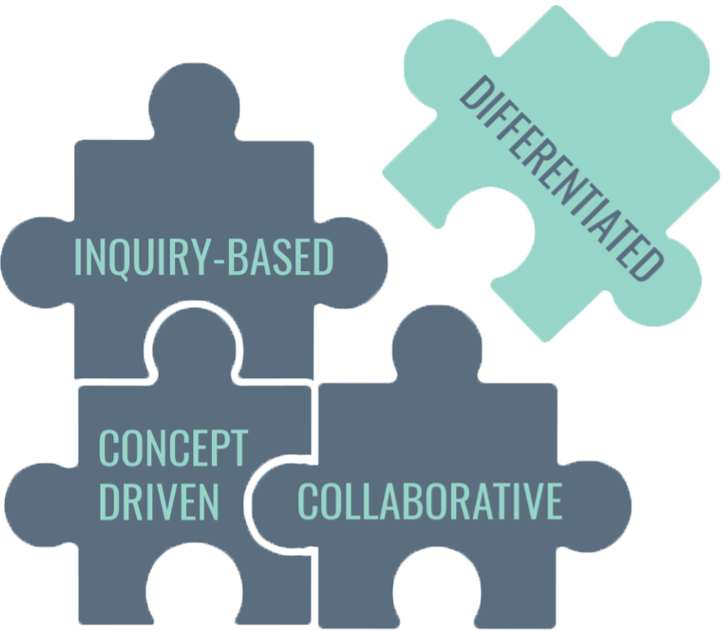
Our teaching method
Learning System at ISS
How we teach the child(ren)
The Approaches to Learning Skills
Approaches to learning (ATL) are integral to the IB Framework and complement the learner profile, knowledge, conceptual understanding, and inquiry. These skills are grounded in the belief that learning how to learn is fundamental to a student’s education.
Five categories of interrelated skills aim to support students of all ages to become self-regulated learners who know how to ask good questions, set effective goals, and pursue their aspirations with the determination to achieve them. These skills also help to support students’ sense of agency, encouraging them to see their learning as an active and dynamic process (IBO 2017). Although the ATL are relevant from 3 to 19 years of age, Primary Years Programme teachers interpret these skills in ways that are appropriate for early and primary years learners.
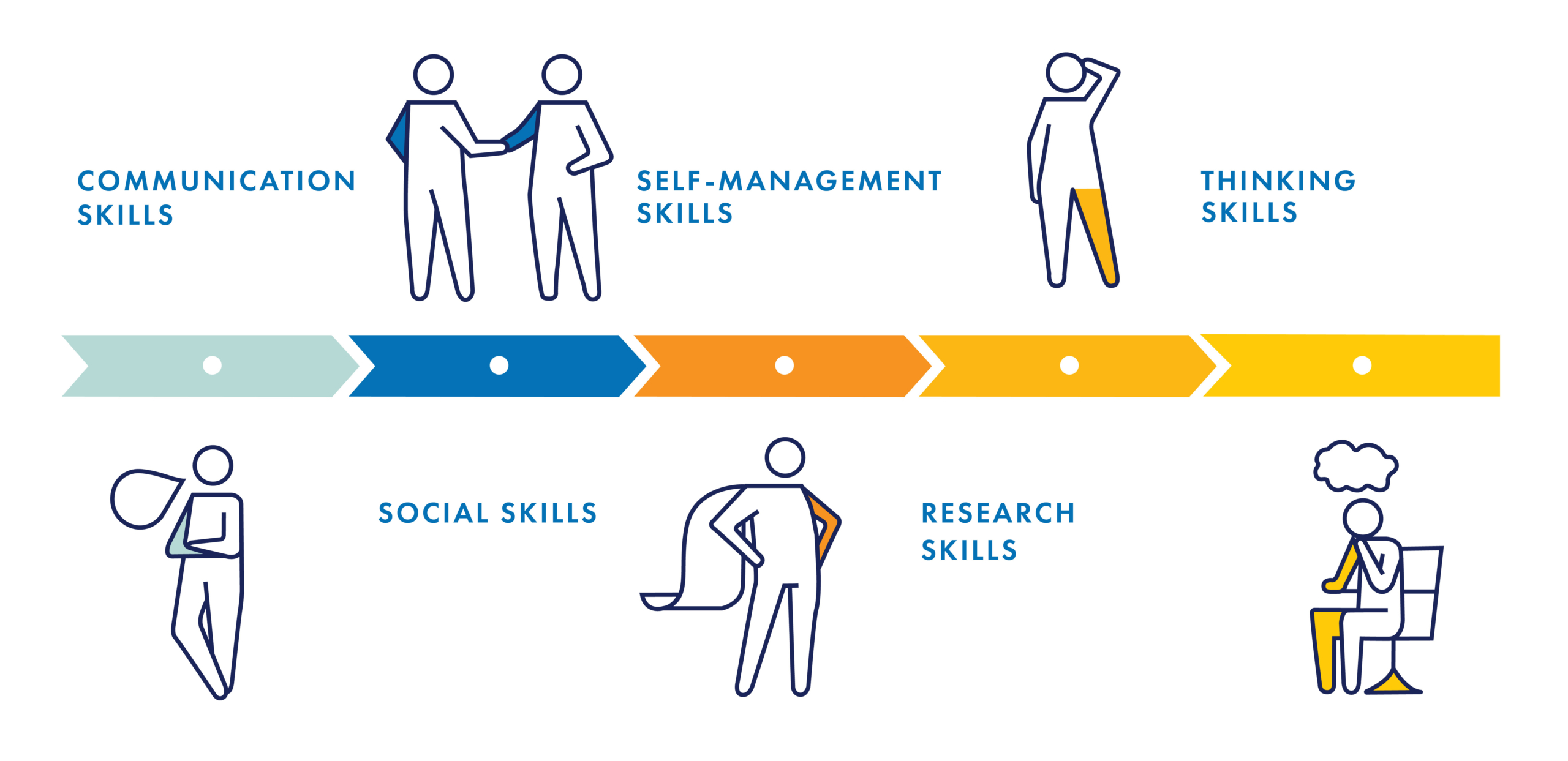
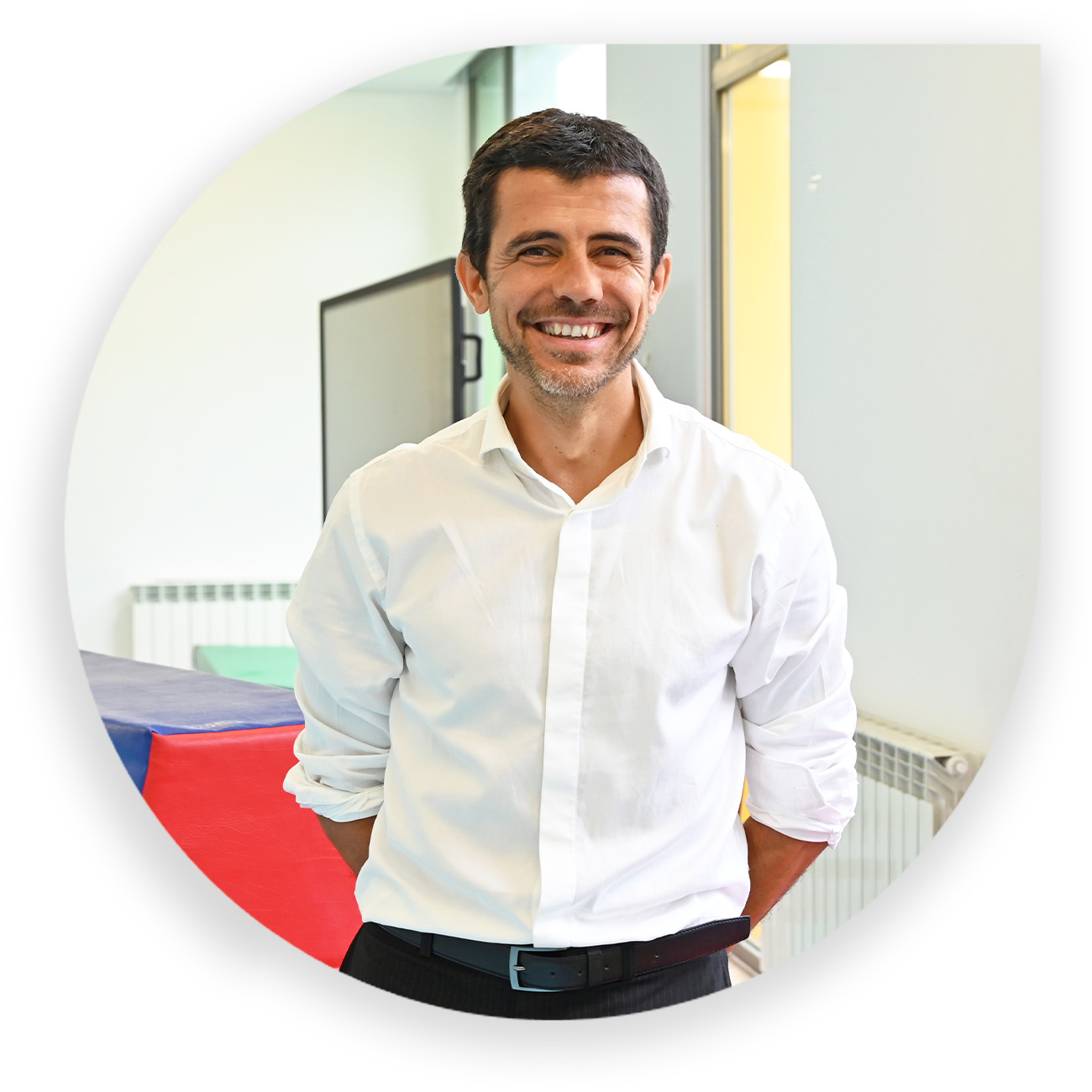
“Children that feel safe can take risks, ask questions, make mistakes, learn to trust, share their feelings, and grow.”
Our Primary Years Programme provides a holistic educational experience, empowering students to become active, compassionate, and lifelong learners. We achieve this through a transdisciplinary framework that encourages exploration and connection-making across subjects, enabling students to see the relevance of their learning in the real world and develop a strong sense of international-mindedness.
Within our safe and inclusive environment, students are encouraged to question, explore, and take ownership of their learning journey, becoming considerate members of our school community.
Through differentiated teaching practices, we ensure that each student at International Sharing School Taguspark receives the support and guidance needed to thrive academically and personally.
– Eduardo Cary, Coordinator of Primary Years Programme (PYP) in Oeiras Valley
School Values
Enhanced Learning Categories
International Sharing School students learn at their own pace, and sometimes the traditional classroom makes it difficult to do so. Our enhanced learning categories enable students to adjust their learning pace while developing different skills throughout their learning journey.
Primary Years Programme
The Classrooms
The character of the Primary Years Programme is reflected in the classroom activities and arrangements. The Primary Years Programme is a framework that promotes collaboration and connections between subjects. Our goal was to develop our classroom based on our curriculum rather than having it adapted to a compact structure of a traditional classroom. This is how our unique design was born: an open IB classroom space where teachers assume the role of facilitators and students act as agents of the learning process. A collaborative open space where students will be involved in group discussions while the teachers support this creative and inquiry flow.
The classroom looks active; students take the initiative, assist each other, get their own resources, and may work in different areas in the classroom. Different groups of students may be working on various projects simultaneously. Plentiful resources are available to stimulate and assist learning, and the learning outcomes are displayed in the classroom, corridors, and school.
